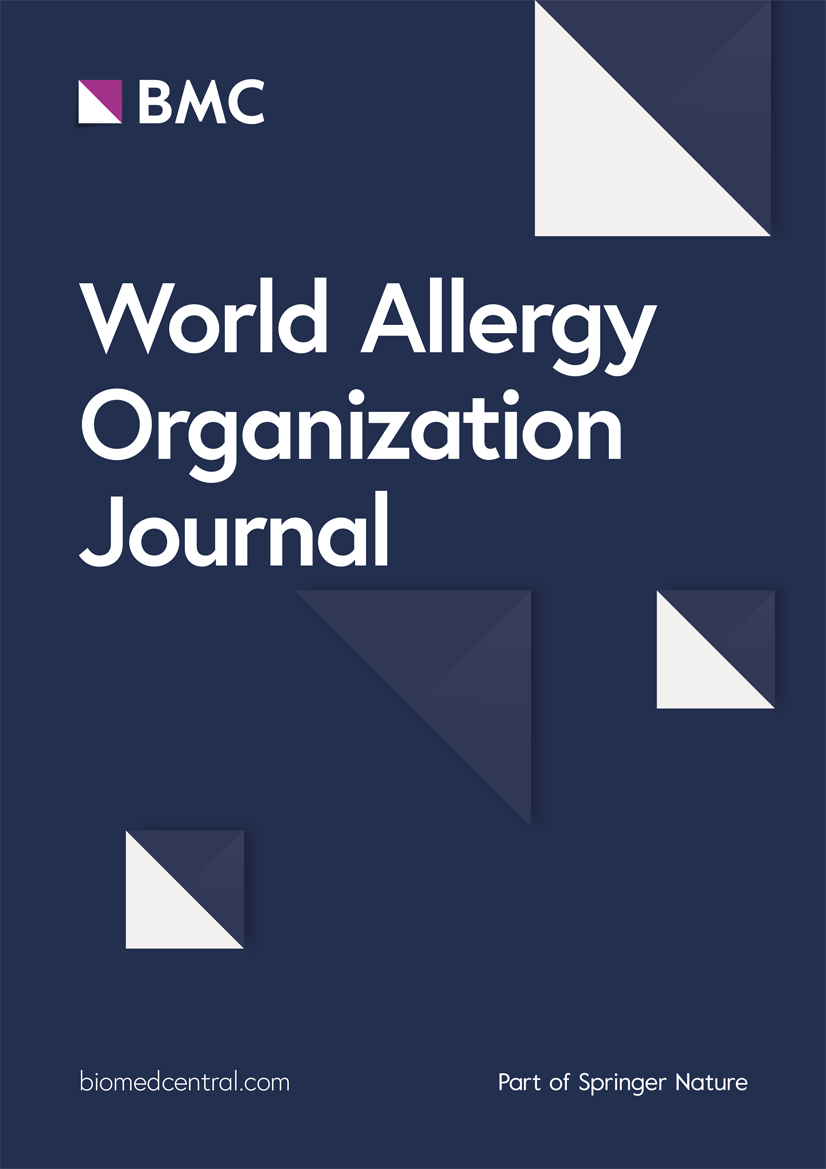Longitudinal multi-trajectory phenotypes of severe eosinophilic asthma on type 2 biologics treatment
IF 3.9
2区 医学
Q2 ALLERGY
引用次数: 0
Abstract
Background
Limited understanding exists regarding the progression trajectory of severe eosinophilic asthma (SEA) patients on type 2 biologics therapies.
Objective
We aim to explore distinct longitudinal phenotypes of these patients based on crucial asthma biomarkers.
Methods
We enrolled 101 adult patients with SEA. Of these, 51 were treated with anti-IL5/IL5Rα or anti-IL5/IL5RαR antibody, and 50 with anti-IL-4Rα antibody. Multi-trajectory analysis, an extension of univariate group-based trajectory modeling, was used to categorize patients based on their trajectories of forced expiratory volume in 1 s (FEV1), blood eosinophil counts (BEC), and fractional exhaled nitric oxide (FeNO) levels at baseline, and after 1, 6, and 12 months of treatment. Associations between trajectory-based clusters and clinical parameters were examined.
Results
Among anti-IL5/IL5Rα antibody-treated patients, 2 clusters were identified. The cluster characterized by higher baseline BEC and lower FEV1 showed a better response, with improvements in FEV1 and reductions in BEC over time. Among anti-IL-4Rα antibody-treated, 3 clusters were identified. Clusters with moderate BEC and FeNO at baseline demonstrated better improvements in FEV1 and reductions in FeNO, despite increased BEC during follow-up. Conversely, individuals with extremely low FeNO and high BEC at baseline were more likely to experience poorer progression, demonstrating an increase in FeNO and a reduction in FEV1.
Conclusion
To optimally monitor treatment response in SEA patients on type 2 biologics, integrating longitudinal biomarker features is essential.
重度嗜酸性粒细胞性哮喘接受 2 型生物制剂治疗的纵向多轨迹表型
背景我们对严重嗜酸性粒细胞性哮喘(SEA)患者接受 2 型生物制剂治疗的进展轨迹了解有限。其中 51 人接受了抗 IL5/IL5Rα 或抗 IL5/IL5RαR 抗体治疗,50 人接受了抗 IL-4Rα 抗体治疗。多轨迹分析是基于单变量组的轨迹建模的扩展,它根据患者在基线、治疗 1 个月、6 个月和 12 个月后的 1 s 强迫呼气容积 (FEV1)、血液嗜酸性粒细胞计数 (BEC) 和部分呼出一氧化氮 (FeNO) 水平的轨迹对患者进行分类。结果在接受抗IL5/IL5Rα抗体治疗的患者中,发现了两个集群。基线BEC较高和FEV1较低的群组反应较好,随着时间的推移,FEV1有所改善,BEC有所下降。在接受抗IL-4Rα抗体治疗的患者中,发现了3个群组。基线BEC和FeNO适中的群组显示出较好的FEV1改善和FeNO降低效果,尽管随访期间BEC有所增加。相反,基线时 FeNO 极低而 BEC 高的个体更有可能出现较差的进展,表现为 FeNO 增加和 FEV1 降低。
本文章由计算机程序翻译,如有差异,请以英文原文为准。
求助全文
约1分钟内获得全文
求助全文
来源期刊

World Allergy Organization Journal
Immunology and Microbiology-Immunology
CiteScore
9.10
自引率
5.90%
发文量
91
审稿时长
9 weeks
期刊介绍:
The official pubication of the World Allergy Organization, the World Allergy Organization Journal (WAOjournal) publishes original mechanistic, translational, and clinical research on the topics of allergy, asthma, anaphylaxis, and clincial immunology, as well as reviews, guidelines, and position papers that contribute to the improvement of patient care. WAOjournal publishes research on the growth of allergy prevalence within the scope of single countries, country comparisons, and practical global issues and regulations, or threats to the allergy specialty. The Journal invites the submissions of all authors interested in publishing on current global problems in allergy, asthma, anaphylaxis, and immunology. Of particular interest are the immunological consequences of climate change and the subsequent systematic transformations in food habits and their consequences for the allergy/immunology discipline.
 求助内容:
求助内容: 应助结果提醒方式:
应助结果提醒方式:


